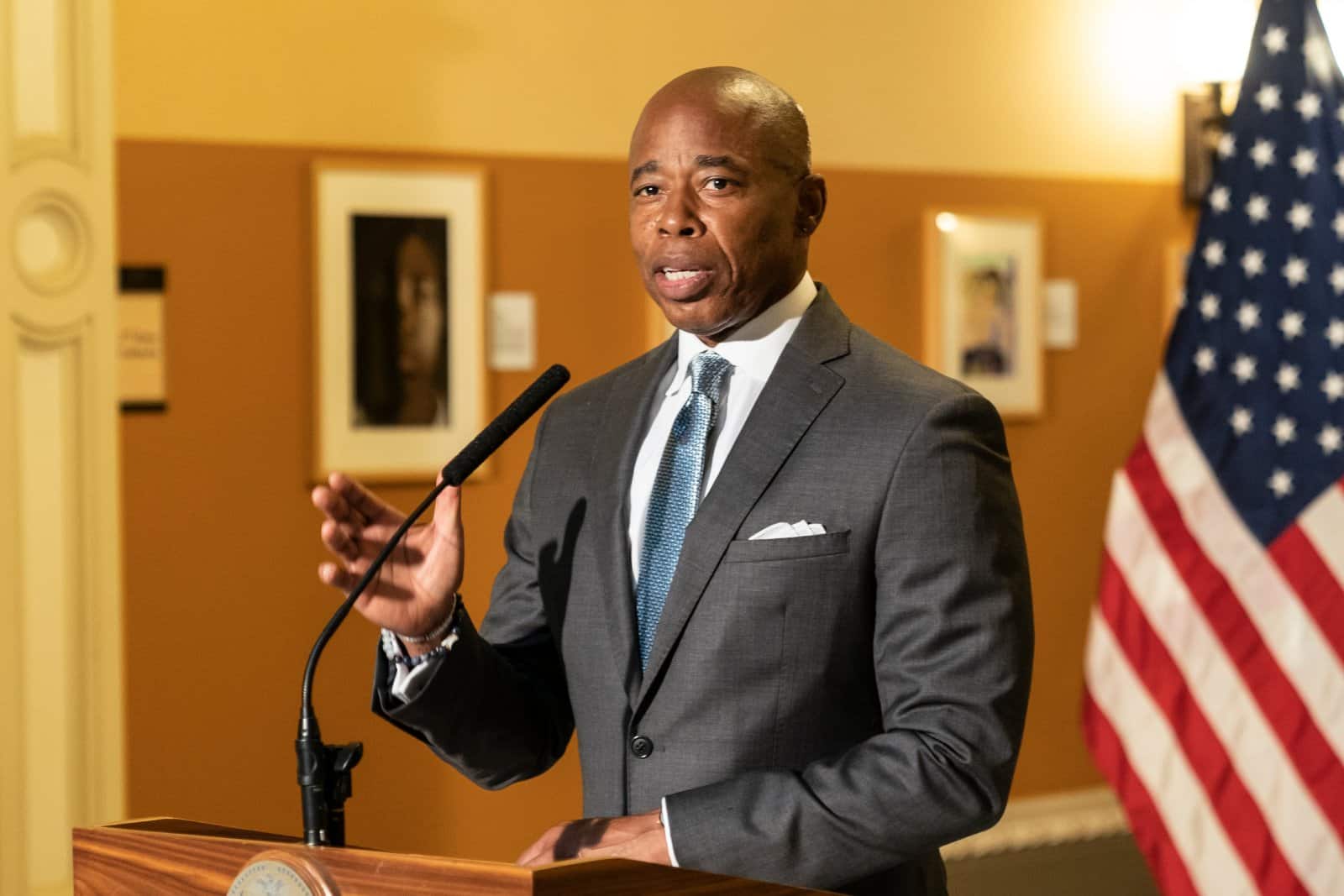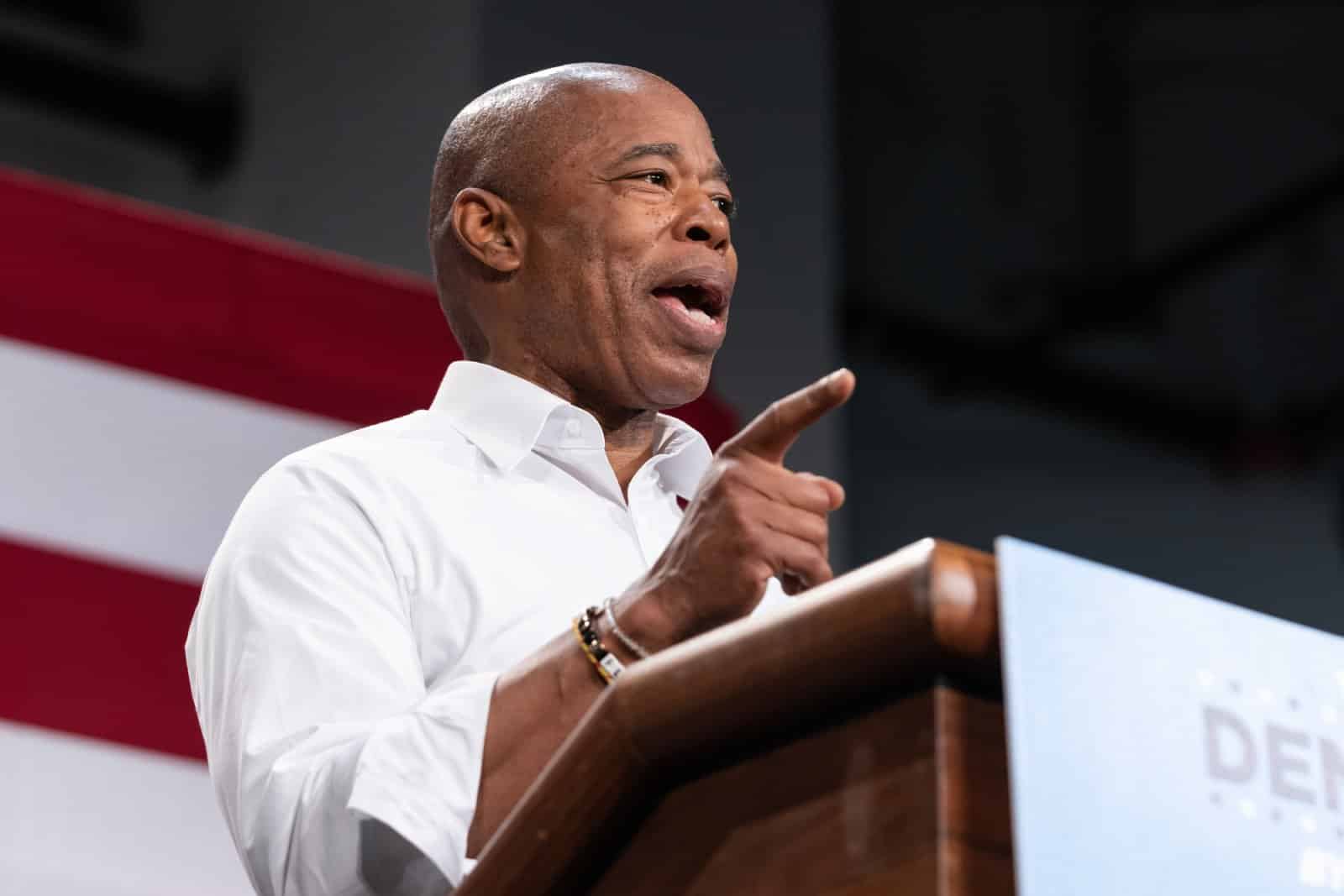In an innovative move, New York City unveiled a pilot program aimed at alleviating the food insecurity faced by migrant families through the distribution of debit cards. This approach, meant to replace uneaten meals with a more flexible food purchasing system, is fuelling a debate across the political spectrum.
Pilot Program Launch

New York City’s leaders proposed a solution to the waste of thousands of uneaten meals intended for migrants: a pilot program to provide them with debit cards.
These cards would allow families to buy their own food, intending to offer a practical alternative to the current system.
Immediate Backlash

The announcement was met with swift criticism from conservative circles. They questioned the fairness and potential for misuse of providing recent migrants with debit cards, casting doubts on the program’s integrity.
Financial Scrutiny

Concerns arose regarding the program’s cost and the selection process of the financial services company tasked with its management.
Mayor Eric Adams stepped in to defend the initiative, highlighting its intended benefits and oversight mechanisms.
Program Details

The city plans to issue prepaid debit cards to 500 migrant families, enabling them to purchase food and baby supplies.
Each card will be reloaded monthly, with allocations based on the number of family members, aiming to provide significant aid to those in need.
Funding and Expansion

Initially targeting families with a 28-day hotel voucher, the program could expand, contingent on its success.
The projected financial commitment could reach up to $53 million, with a significant portion directly supporting the migrant families.
Safety Measures

To mitigate risks of fraud and misuse, the program incorporates strict spending limits and usage guidelines.
These measures aim to ensure the cards serve their intended purpose without exposing the city to undue financial risk.
Public Reaction

The initiative has become a focal point for national debate, with critics labeling it as misguided.
Misrepresentations in media coverage further fueled skepticism despite city officials’ clarifications regarding the program’s restrictions and objectives.
Program Defense

City officials and the mayor have worked to correct misconceptions, emphasizing the program’s limitations to essential items like food and baby supplies.
This effort seeks to reassure the public about the program’s focused and responsible implementation.
Vendor Selection

The choice of Mobility Capital Finance (MoCaFi) as the program’s administrator raised eyebrows, given the company’s emergency selection and the city’s recent contracting controversies.
Mayor Adams justified the decision by aligning it with his priorities for technological innovation and support for minority-owned businesses.
Cost Savings Argument

Adams argued that the debit card program could ultimately save the city money by providing a more efficient way to address migrant needs.
This perspective suggests a strategic approach to leveraging technology for social welfare.
Company Background

MoCaFi, led by Wole Coaxum, was founded with a mission to enhance financial access for underserved communities.
The company’s experience with similar initiatives in other cities positions it as a capable partner for New York’s ambitious program.
Criticism and Support

While the program has its detractors, it also finds support among those who see it as an innovative solution to a complex issue.
By providing migrants with the means to purchase food directly, the city hopes to inject flexibility and dignity into its assistance efforts.
Expected Outcomes

The success of the debit card program could serve as a model for other cities grappling with similar challenges.
It represents a tangible effort to address the immediate needs of migrant families while navigating the broader political and logistical complexities.
A Controversial but Hopeful Step Forward

Despite the controversy, New York’s migrant debit card program embodies a bold attempt to rethink how cities support their most vulnerable residents.
As the program rolls out, its outcomes will likely inform future policy decisions both within and beyond New York City.
Proving Critics Wrong

The initiative, while embroiled in debate, underscores the ongoing struggle to balance humanitarian assistance with sound decision-making and public perception.
As it unfolds, the program may yet prove its critics wrong, offering a new way to aid migrant families in a manner that respects their autonomy and needs.
The post New York Provides Prepaid Debit Cards to Migrants to Address Food Insecurity first appeared on Swift Feed.
Featured Image Credit: Shutterstock / lev radin.

